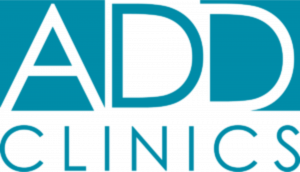
Integration of Mindfulness and Meditation into ADD Therapy
Mindfulness and Meditation Practices Gain Traction in ADD Therapy
Recent studies have highlighted the efficacy of mindfulness and meditation in managing symptoms associated with ADD. These practices, rooted in ancient traditions, offer modern therapeutic benefits that align well with contemporary understanding of neurobehavioral disorders. Mindfulness involves paying deliberate attention to the present moment, while meditation encompasses various techniques designed to train attention and awareness.
Focus Improvement through Mindfulness
Mindfulness training helps individuals with ADD by improving their ability to maintain attention and reduce distractibility. Techniques such as mindful breathing, body scan exercises, and mindful movement are employed to cultivate sustained attention. By regularly practicing mindfulness, individuals learn to anchor their focus, which is often a challenge for those with ADD.
Stress Reduction and Emotional Regulation
Incorporating meditation into ADD therapy also addresses the heightened stress levels commonly experienced by individuals with ADD. Meditation practices such as guided imagery, loving-kindness meditation, and progressive muscle relaxation are effective in reducing physiological and psychological stress responses.
Dr. Stanford Owen, owner of ADD Clinics in Mississippi, comments on the integration of these practices: "Mindfulness and meditation provide valuable tools for individuals with ADD to manage stress and enhance emotional regulation. These practices enable patients to develop a greater sense of calm and control, which is critical in navigating the challenges associated with ADD."
Meditation has been shown to activate the parasympathetic nervous system, promoting relaxation and counteracting the body's stress response. This physiological shift contributes to a decrease in cortisol levels, the hormone associated with stress, thereby fostering a state of calm and improved emotional stability.
Combining Traditional and Innovative Approaches
The integration of mindfulness and meditation into ADD therapy represents a holistic approach, complementing traditional treatment modalities such as cognitive-behavioral therapy (CBT) and medication. While CBT focuses on modifying maladaptive thought patterns and behaviors, mindfulness and meditation enhance self-awareness and emotional regulation, providing a comprehensive treatment strategy.
Programs that combine these approaches have reported significant improvements in symptom management and overall quality of life for individuals with ADD. For instance, the Mindful Awareness Practices (MAPs) for ADHD program at UCLA's Mindful Awareness Research Center has shown promising results in both clinical settings and pilot studies.
Future Directions and Research
Ongoing research continues to explore the full potential of mindfulness and meditation in ADD therapy. Future studies aim to refine these practices and evaluate their long-term benefits. Additionally, there is a growing interest in developing digital applications that offer guided mindfulness and meditation sessions, making these practices more accessible to a wider population.
In conclusion, the integration of mindfulness and meditation into ADD therapy is gaining traction as an effective complementary approach. These practices offer valuable benefits in improving focus, reducing stress, and enhancing emotional regulation. Dr. Stanford Owen emphasizes, "Incorporating mindfulness and meditation into treatment plans can significantly improve outcomes for individuals with ADD, offering them tools to better manage their symptoms and lead more fulfilling lives."
Morgan Thomas
Rhino Digital, LLC
+1 504-875-5036
email us here
Visit us on social media:
Facebook
EIN Presswire does not exercise editorial control over third-party content provided, uploaded, published, or distributed by users of EIN Presswire. We are a distributor, not a publisher, of 3rd party content. Such content may contain the views, opinions, statements, offers, and other material of the respective users, suppliers, participants, or authors.



